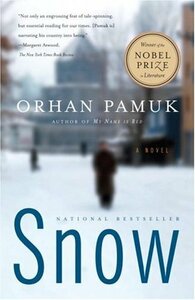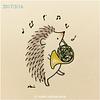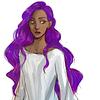Take a photo of a barcode or cover
challenging
dark
emotional
funny
mysterious
reflective
sad
tense
slow-paced
Plot or Character Driven:
A mix
Strong character development:
Yes
Loveable characters:
No
Diverse cast of characters:
Yes
Flaws of characters a main focus:
Yes
So unlike a Western novel. Pamuk deservedly won the Nobel Prize for Literature. Ka the narrator, returns from exile in Germany and makes a trip east to Kars in the snow ("kar" in Turkish). The narrator is stuck in the town because of the heavy snow and he hears the views of different political commentators, secular and religious during his stay. I find Pamuk's work doesn't grip me, like say a Western Crime novel but it does reward careful (even slow) reading, with great insight into contemporary Turkish thinking.We should also thank the translator, Maureen Freely, for giving us non-Turkish speakers access to this incredible literary talent.
I was really interested in this book since the main character Ka, is a Turkish poet living in Germany. However, most of this book takes place in Turkey when Ka returns to his childhood home during a tumultous political period. I made sure to read the book while it was snowy outside since that is a strong element of the story. This book certainly has several different elements regarding religion, politics, exile, love, and family. Unfortunately, the various components of this tale weren't woven together in a believable way for me. I was disappointed in the disjointed implausible nature of this story. It was just difficult for me to sustain my interest in this story as it progressed.
sad
slow-paced
The book was one of my biggest disappointment. The story has such great potential: several murders in a provincial city in Turkey. No, it's not like this. After a quarter of the book, the book starts to be political, almost obsessive to the matter of the veil trough of the representation of Sunay and Funda. There are so good potential characters like Blue and the Sheik but they are barely developed. Ka, the main character he is just a slump guy who dreams to return in Germany but stuck between his (religious) roots and his western identity. The book is heavy and it took me crazy efforts to finish just because I really liked Istanbul Memories. This book has nothing to do with detective stories nor a well depth Turgenev wannabe novel. It's just a transition book with some good not developed Russian wannabe novel character. Please don't read this book if you don't wanna stuck in a not necessary political litany. I will give another chance to this Author.
challenging
dark
emotional
slow-paced
Plot or Character Driven:
A mix
Strong character development:
Complicated
Loveable characters:
Yes
Diverse cast of characters:
Complicated
Flaws of characters a main focus:
Complicated
emotional
reflective
sad
tense
slow-paced
Plot or Character Driven:
Character
Strong character development:
Complicated
Loveable characters:
No
Diverse cast of characters:
Yes
Flaws of characters a main focus:
Yes
challenging
dark
emotional
funny
hopeful
informative
mysterious
reflective
sad
tense
slow-paced
Plot or Character Driven:
A mix
Strong character development:
Complicated
Loveable characters:
Complicated
Diverse cast of characters:
Yes
Flaws of characters a main focus:
No
emotional
reflective
medium-paced
Plot or Character Driven:
A mix
Strong character development:
No
Loveable characters:
Complicated
Diverse cast of characters:
Yes
Flaws of characters a main focus:
Yes



